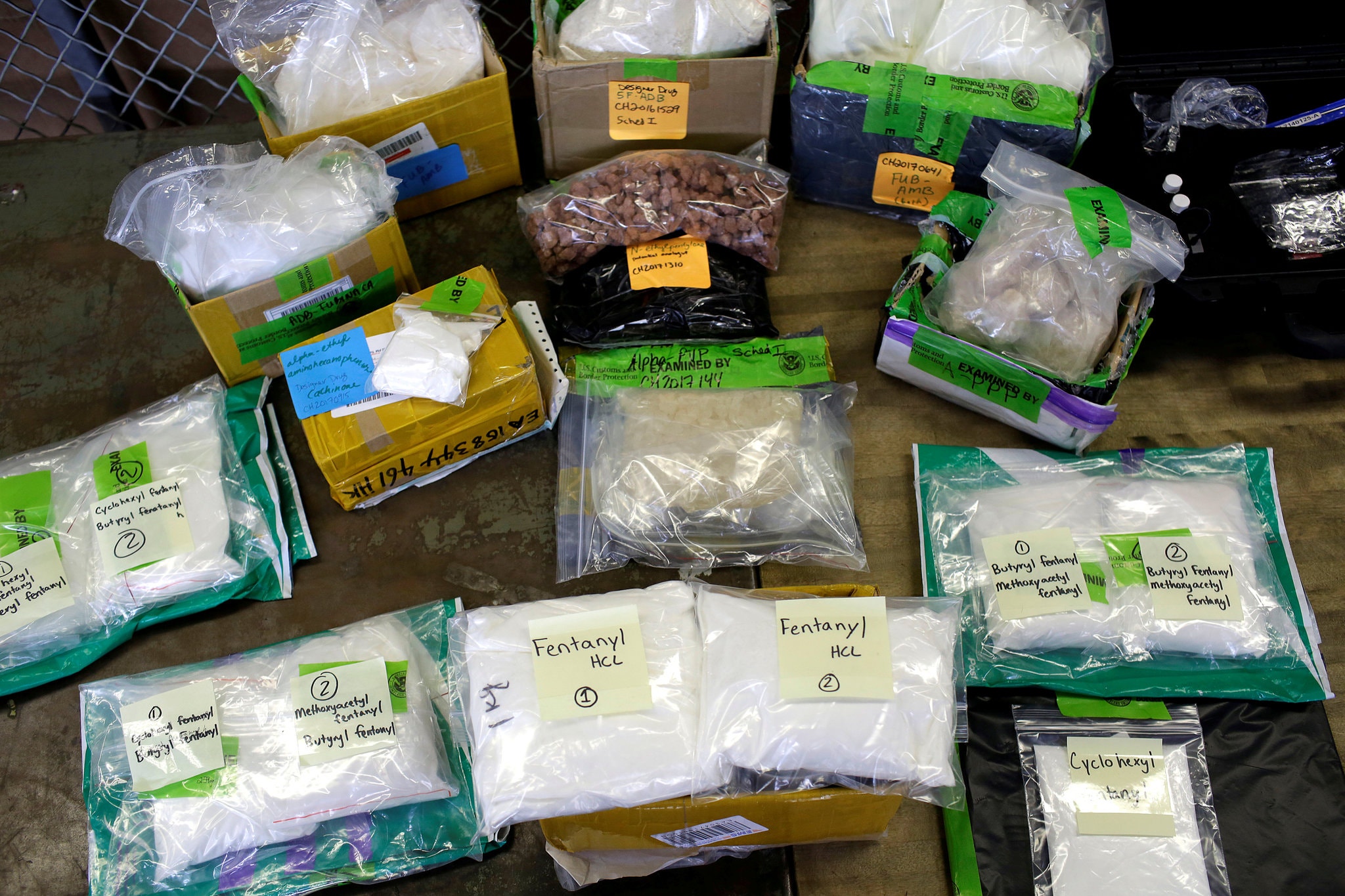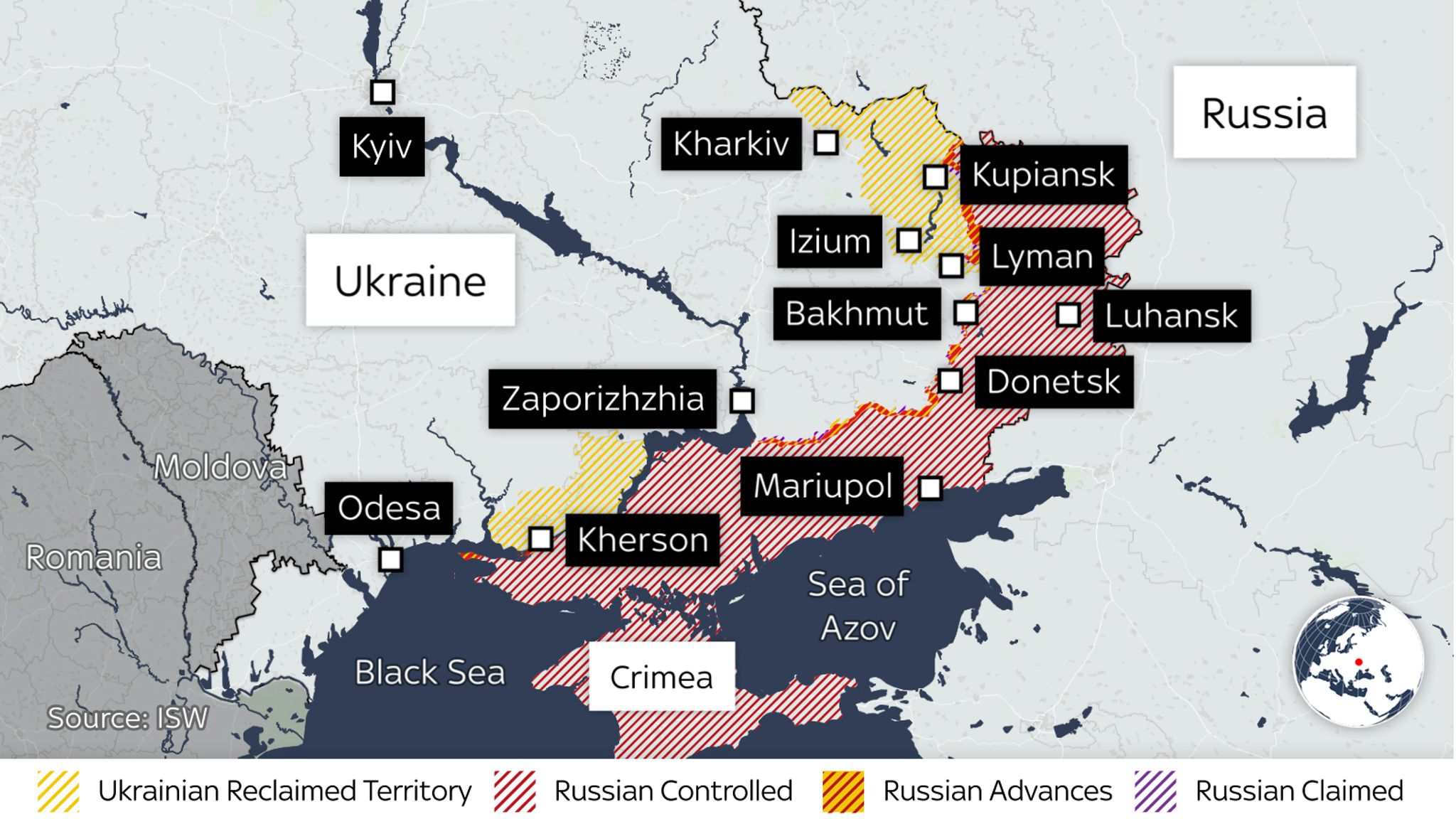Fentanyl Crisis: A Catalyst For U.S.-China Trade Negotiations?

Table of Contents
China's Role in the Fentanyl Supply Chain
China plays a crucial, albeit often clandestine, role in the global fentanyl supply chain. While not directly producing the finished fentanyl product in large quantities, China is a major source of precursor chemicals – the essential building blocks used to synthesize the drug. The challenge lies in tracking and regulating these chemicals, many of which have legitimate industrial uses, making it difficult to distinguish between legitimate trade and illicit activities. Current Chinese regulations regarding fentanyl precursors, while seemingly tightening, have proven insufficient to stem the flow of these chemicals into the hands of illicit manufacturers.
- Percentage of fentanyl precursors originating from China: Estimates vary, but a significant portion of the precursor chemicals used in fentanyl production originates from China. Precise figures are difficult to obtain due to the clandestine nature of the trade.
- Methods used to smuggle these chemicals: Smuggling networks employ various methods, including concealing chemicals within legitimate shipments, using shell companies, and exploiting vulnerabilities in international shipping regulations.
- Examples of successful and unsuccessful Chinese crackdowns on fentanyl production: China has undertaken crackdowns, resulting in some arrests and seizures. However, the scale of the problem and the sophisticated methods used by traffickers make complete eradication a significant challenge.
- The role of Chinese chemical companies in the supply chain: Some Chinese chemical companies, whether knowingly or unknowingly, may be involved in supplying precursor chemicals to illicit actors. Investigating and prosecuting these companies is a crucial element in disrupting the supply chain.
U.S. Pressure Tactics and Diplomatic Strategies
Faced with the devastating consequences of the fentanyl crisis, the U.S. has employed various diplomatic strategies to pressure China to take more effective action. These strategies include:
- Sanctions: The U.S. has imposed sanctions on Chinese entities believed to be involved in the fentanyl trade, aiming to disrupt their operations and send a clear message. Examples include sanctions targeting specific companies and individuals.
- Bilateral and Multilateral Discussions: The U.S. engages in bilateral discussions with China and participates in multilateral forums to coordinate international efforts to combat the fentanyl trade. The effectiveness of these discussions remains a subject of ongoing debate.
- Intelligence Sharing: Increased intelligence sharing between the U.S. and China could significantly improve law enforcement efforts and aid in disrupting trafficking networks. However, building trust and overcoming intelligence-sharing barriers poses a significant challenge.
- International Organizations: The U.S. works with international organizations like the UN Office on Drugs and Crime (UNODC) to strengthen international drug control treaties and coordinate global efforts to curb the flow of fentanyl.
Trade as a Bargaining Chip
The fentanyl crisis presents a complex dilemma: Could the crisis be leveraged in future trade negotiations? The U.S. might consider linking trade concessions—or the threat of tariffs or other trade restrictions—to China's commitment to stricter controls on fentanyl precursors. However, this strategy carries significant political and economic risks.
- Potential trade concessions: The U.S. could offer or withhold specific trade concessions to incentivize cooperation. However, balancing the urgency of the fentanyl crisis with broader trade interests requires careful consideration.
- Economic impact: Restricting trade could have significant economic repercussions for both countries, potentially disrupting global supply chains.
- Blowback from other countries: Other countries involved in the fentanyl supply chain could react negatively to U.S. pressure on China, creating additional diplomatic complexities.
- Escalation of tensions: Linking trade to the fentanyl crisis could escalate tensions between the two countries, potentially harming broader diplomatic relations.
Alternative Strategies Beyond Trade
Addressing the fentanyl crisis requires a multifaceted approach that extends beyond trade negotiations. Alternative strategies include:
- Strengthening international drug control treaties: Strengthening international cooperation and enforcing existing treaties is crucial.
- Increased funding for drug treatment and prevention programs: Investing in treatment and prevention programs in both the U.S. and China is essential to reducing demand and providing support for those struggling with addiction.
- Improved border security measures: Strengthening border security measures to prevent the smuggling of fentanyl and its precursors is necessary.
- Investment in research and development: Investment in research and development of new treatments, detection technologies, and alternative pain management strategies is crucial.
Conclusion: The Fentanyl Crisis and the Future of U.S.-China Trade
The fentanyl crisis presents a profound challenge to U.S.-China relations. While leveraging trade negotiations to address the issue is a potential strategy, it involves significant risks. The complex interplay between diplomatic pressure, trade negotiations, and effective law enforcement requires a nuanced approach. Ultimately, effective fentanyl control requires a concerted global effort. We must advocate for stronger international cooperation to curb the flow of fentanyl, utilizing all available diplomatic tools, including trade negotiations, to confront this urgent global health crisis. Continued monitoring of the situation and future developments in U.S.-China relations regarding the fentanyl crisis are crucial for finding sustainable fentanyl crisis solutions and achieving U.S.-China fentanyl cooperation. The development of effective fentanyl control strategies demands immediate and sustained attention.

Featured Posts
-
 Putins Victory Day Ceasefire Hope For Peace Or Propaganda
May 09, 2025
Putins Victory Day Ceasefire Hope For Peace Or Propaganda
May 09, 2025 -
 U S China Trade Talks De Escalation Efforts This Week
May 09, 2025
U S China Trade Talks De Escalation Efforts This Week
May 09, 2025 -
 Stiven Fray Stal Rytsarem Podrobnosti Tseremonii
May 09, 2025
Stiven Fray Stal Rytsarem Podrobnosti Tseremonii
May 09, 2025 -
 Elon Musks Net Worth Under President Trump A 100 Day Overview
May 09, 2025
Elon Musks Net Worth Under President Trump A 100 Day Overview
May 09, 2025 -
 Western Manitoba Under Snowfall Warning Heavy Snow Expected
May 09, 2025
Western Manitoba Under Snowfall Warning Heavy Snow Expected
May 09, 2025
Latest Posts
-
 Oilers Vs Sharks Nhl Game Expert Predictions And Betting Picks
May 09, 2025
Oilers Vs Sharks Nhl Game Expert Predictions And Betting Picks
May 09, 2025 -
 Nhl Prediction Oilers Vs Sharks Betting Analysis And Odds
May 09, 2025
Nhl Prediction Oilers Vs Sharks Betting Analysis And Odds
May 09, 2025 -
 Oilers Vs Sharks Game Tonight Prediction Picks And Betting Odds
May 09, 2025
Oilers Vs Sharks Game Tonight Prediction Picks And Betting Odds
May 09, 2025 -
 Oilers Vs Sharks Prediction Picks And Odds For Tonights Nhl Game
May 09, 2025
Oilers Vs Sharks Prediction Picks And Odds For Tonights Nhl Game
May 09, 2025 -
 Melanie Griffith And Dakota Johnsons Siblings Attend Materialist Premiere
May 09, 2025
Melanie Griffith And Dakota Johnsons Siblings Attend Materialist Premiere
May 09, 2025
